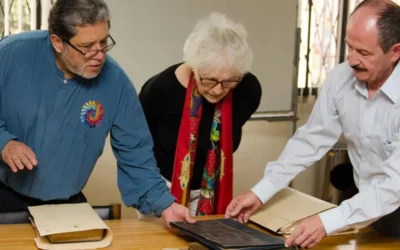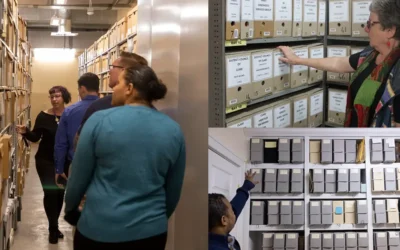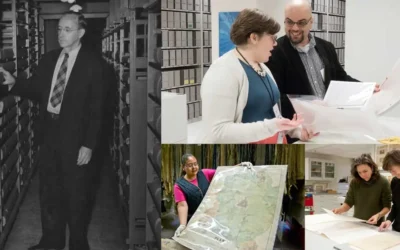Archival and Records Management Preservation
Margot Note
Records managers develop retentions and approve disposals to clear unneeded records while at the same time advocating for planned preservation of those records that need to be retained for the long term.
For records managers, archival means long-term but not necessarily permanent. Records managers may feel that their archival data has long-term continuing value, replacing permanent as a description of archival value in some circles.
Shared Challenges
Still, archivists and records managers face similar challenges when it comes to the preservation of digital objects. Both recognize that there is no permanent solution to digital preservation and that looking at digital preservation as a series of medium-term solutions is the safest approach.
The key is to maintain a migration path from one preservation method or platform to the next. Migration paths can take many forms. Media migration ensures an easy way to get records from their current storage medium onto another. Keys to success here are sticking with nonproprietary software and hardware and using only those formats with an established market share so that there will be enough of a market to move from an older storage medium to a new one.
Long-Term Retention
The same concepts apply to formats for long-term retention as well. To the extent possible, archivists should get the organization to standardize and reduce the number of records requiring long-term retention formats. For example, many organizations are using PDF or PDF/A for long-term retention of unstructured data. PDF is proprietary, and risks are involved in relying on it, but it is so broadly used that it has become a de facto standard, and if there are problems later, there will be plenty of tools to convert PDF to whatever the succeeding format is.
Software Issues
Software poses the most significant challenge as it complicates preservation tremendously. Even if archivists can only move their organizations to a limited selection of formats, they are much better positioned for long-term retention. Again, the same issues arise the extent to which the software is open, the level of market share, and the degree of compatibility with other software are all questions to consider. The problem is that software is often selected to meet immediate needs. The best archivists can do in most cases is argue for the need for a migration path.
Preservation is Expensive
One key preservation issue is cost. Preservation, no matter what form it takes, costs money. The easiest way to reduce that cost is through a regular disposition program that eliminates the large percentage of the records that do not need to be preserved. The most common preservation approach is simply maintaining everything through recopying, which is cheap. If the records cannot be found or accessed, or understood down the road, IT will say that it has done the best it could. Many IT departments will argue that this approach is sufficient because they can still access older records. The problem with their argument is that records going back to the mid-1980s, most data were maintained centrally using mainframe computers, and important records of an organization were kept on paper. The computing environment has gotten much more complex since then, and those who have looked seriously at the problem that preservation tactics this far will not maintain the accessibility of records into the future.
Special Preservation Challenges
Preservation of some types of digital information poses unique challenges because the records are heavily dependent on the software that produces them. For example, geographic information systems, computer modeling programs, computer games, and other software and records are inseparable pose particular problems. In addition, complexities exist for preserving websites, only one of many types of records that will need special attention for preservation.
Although archivists and records managers may differ in defining preservation, they share similar challenges and strive to preserve and protect records of enduring value.
Margot Note
Margot Note, archivist, consultant, and Lucidea Press author is a regular blogger, and popular webinar presenter for Lucidea, provider of ArchivEra, archival collections management software for today’s challenges and tomorrow’s opportunities. Read more of Margot’s posts here.
Never miss another post. Subscribe today!
Similar Posts
Navigating Selection in Archival Practice
The archival selection process is far from straightforward, given the limitations of long-term preservation and ongoing accessibility challenges.
Responsible Stewardship in Archival Practice
Responsible stewardship is a philosophy that guides the actions and decisions of archivists in safeguarding collective memory.
A Modern View of a City’s History via ArchivEra
Brief success story on City of Regina Archives’ use of ArchivEra to manage collections of legal, historical, administrative or financial significance
Stewards of the Past, Guardians of the Future
Archival preservation bridges the past and future, allowing the voices and stories of bygone eras to resonate with contemporary and future audiences.
Hosting service
Enjoy all of the benefits of your Lucidea solution with secure, reliable, stress free hosting
Programs & incentives
No matter your size or budget, we’ve got you covered, today and tomorrow




Leave a Comment
Comments are reviewed and must adhere to our comments policy.
0 Comments